British patients test world’s first personalised MRNA cancer jab for melanoma
The ‘gamechanger’ jab works by telling the body to hunt down cancer cells and prevent the deadly disease from coming back
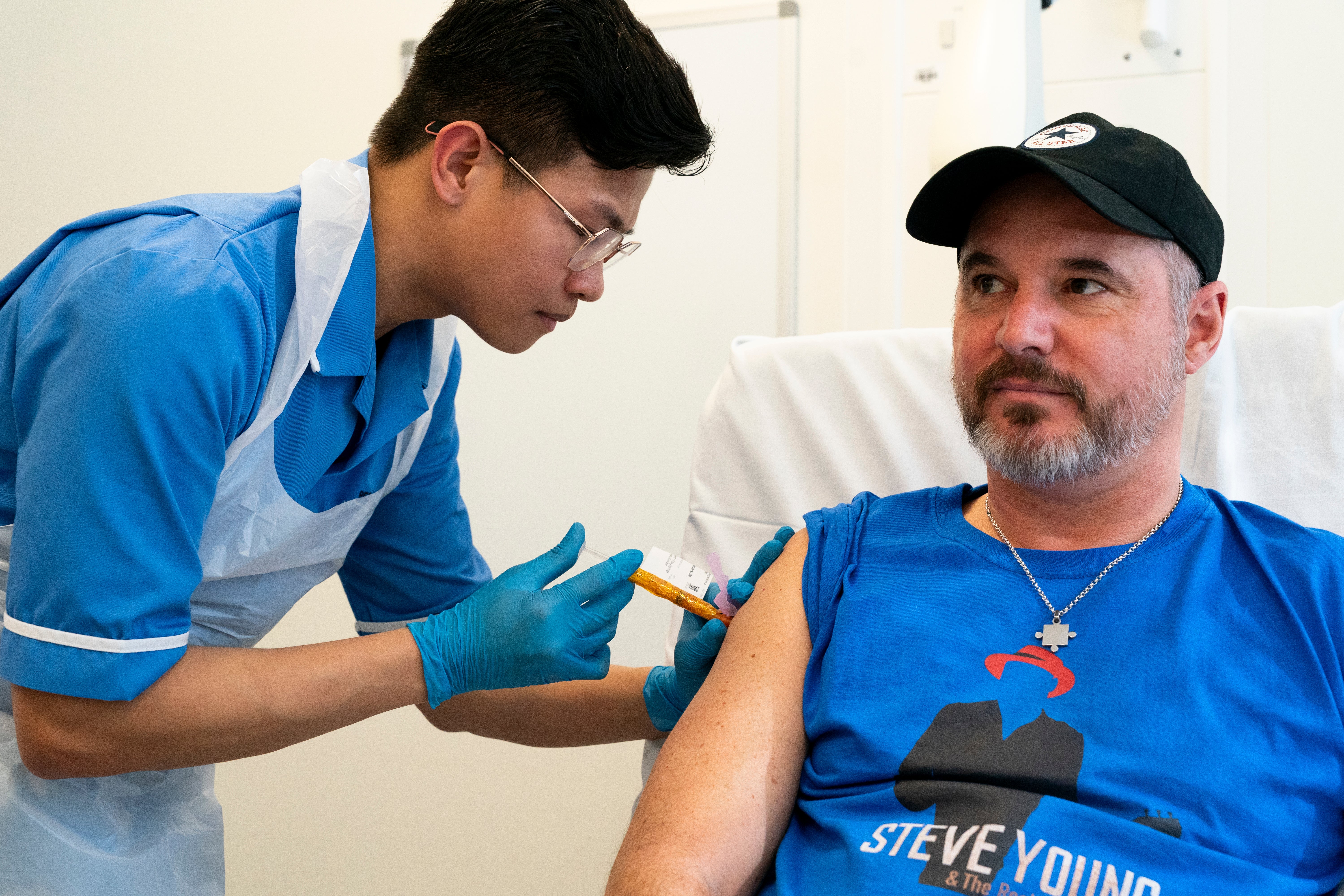
Your support helps us to tell the story
This election is still a dead heat, according to most polls. In a fight with such wafer-thin margins, we need reporters on the ground talking to the people Trump and Harris are courting. Your support allows us to keep sending journalists to the story.
The Independent is trusted by 27 million Americans from across the entire political spectrum every month. Unlike many other quality news outlets, we choose not to lock you out of our reporting and analysis with paywalls. But quality journalism must still be paid for.
Help us keep bring these critical stories to light. Your support makes all the difference.
The world’s first personalised mRNA cancer jab for melanoma – which also has the potential to stop lung, bladder and kidney cancer – is being tested in British patients.
The “gamechanger” jab works by telling the body to hunt down cancer cells to prevent the deadly disease from coming back and is custom-built for each person in just a few weeks.
A stage 2 trial of the jab, involving pharmaceutical firms Moderna and MSD, found it dramatically reduced the risk of the cancer returning in melanoma patients.
Now a final phase 3 trial has been launched, led by University College London Hospitals NHS Foundation Trust (UCLH).
Dr Heather Shaw, national co-ordinating investigator for the trial, said the jab is “one of the most exciting things we’ve seen in a really long time”.
She added that it had the potential to cure people with melanoma and is being tested in other cancers.
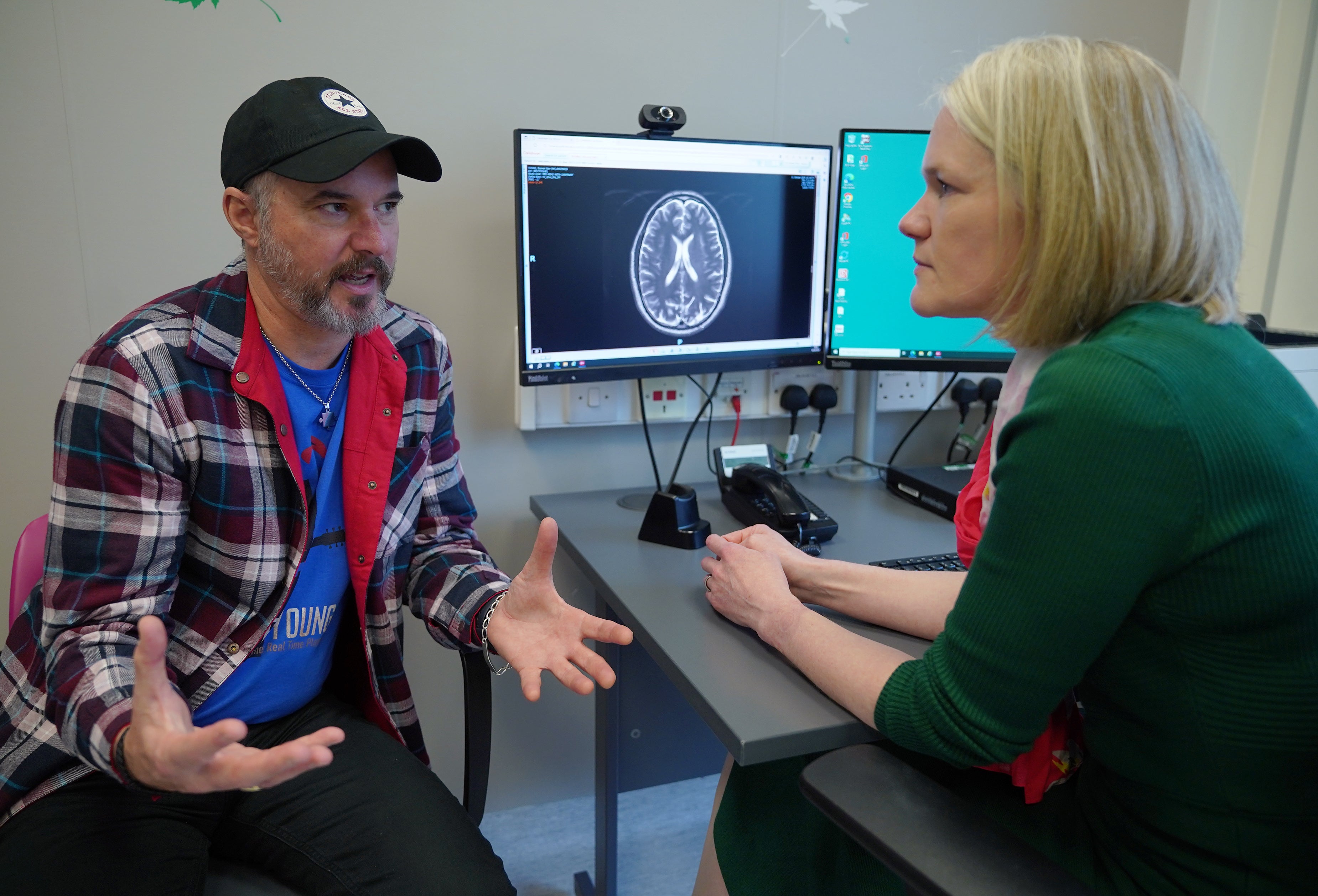
“This is a really finely honed tool,” she said.
“To be able to sit there and say to your patients that you’re offering them something that’s effectively like the Fat Duck at Bray versus McDonald’s – it’s that level of cordon bleu that’s coming to them.
“These things are hugely technical and finely generated for the patient. The patients are really excited about them.”
One of the first patients on the trial at UCLH is Steve Young, 52, from Stevenage who was diagnosed with cancer after the “bump on the head” – which he thinks he had for around a decade – turned out to be melanoma.
Mr Young said when he was told about the trial at UCLH it “really triggered my geek radar”.
He added: “It really piqued my interest. As soon as they mentioned this mRNA technology that was being used to potentially fight cancer, I was just like, ‘it sounds fascinating’ and I still feel the same. I’m really, really excited.
“This is my best chance at stopping the cancer in its tracks.”
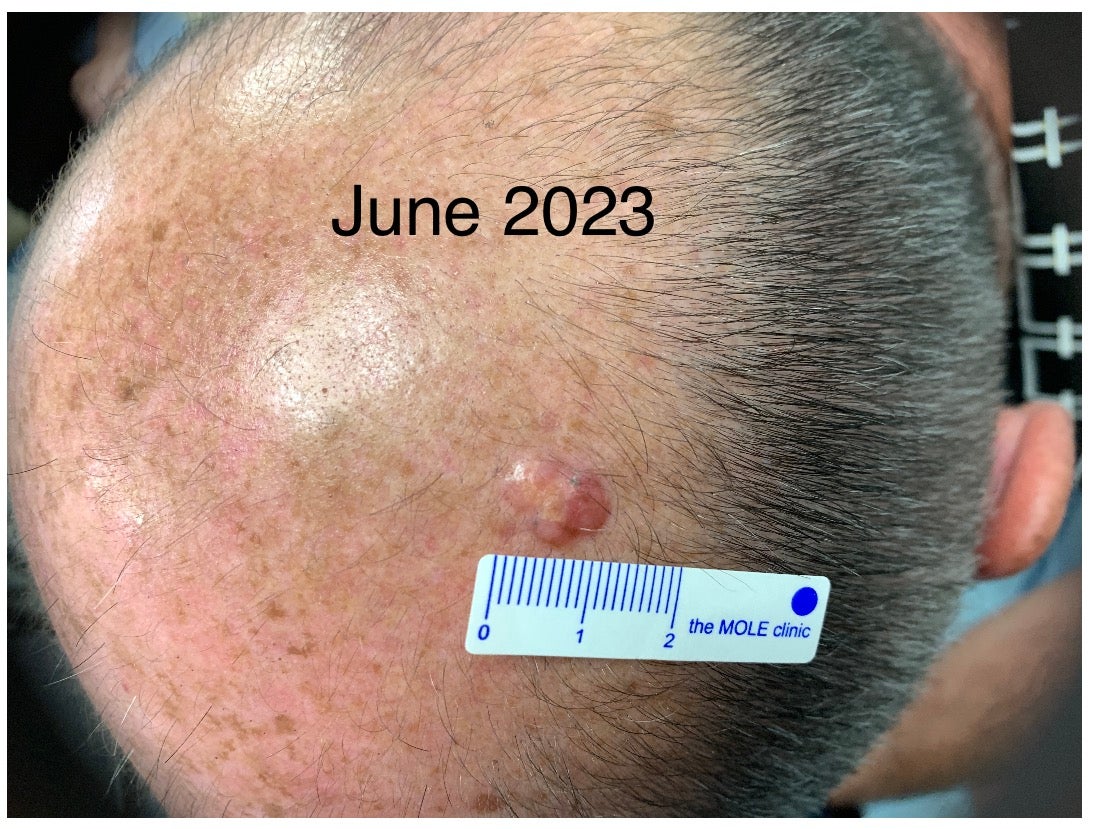
The new jab is designed to trigger the immune system so it can fight back against the patient’s specific type of cancer and tumour.
Phase 2 trial data, published in December, found that people with serious high-risk melanomas who received the jab alongside MSD’s immunotherapy Keytruda medicine were almost half (49 per cent) as likely to die or have their cancer come back after three years than those who were given only Keytruda.
The phase 3 global trial will now include a wider range of patients, and hopes to recruit around 1,100 people.
The UK arm aims to recruit at least 60 to 70 patients across eight centres, including in London, Manchester, Edinburgh and Leeds and the therapy combination is also being trialled in lung, bladder and kidney cancer.
Known as mRNA-4157 (V940), the jab is created to target tumour neoantigens, which are markers on the tumour which can potentially be recognised by the immune system.
The jab carries coding for up to 34 neoantigens and activates an anti-tumour immune response based on the unique mutations in a patient’s cancer.
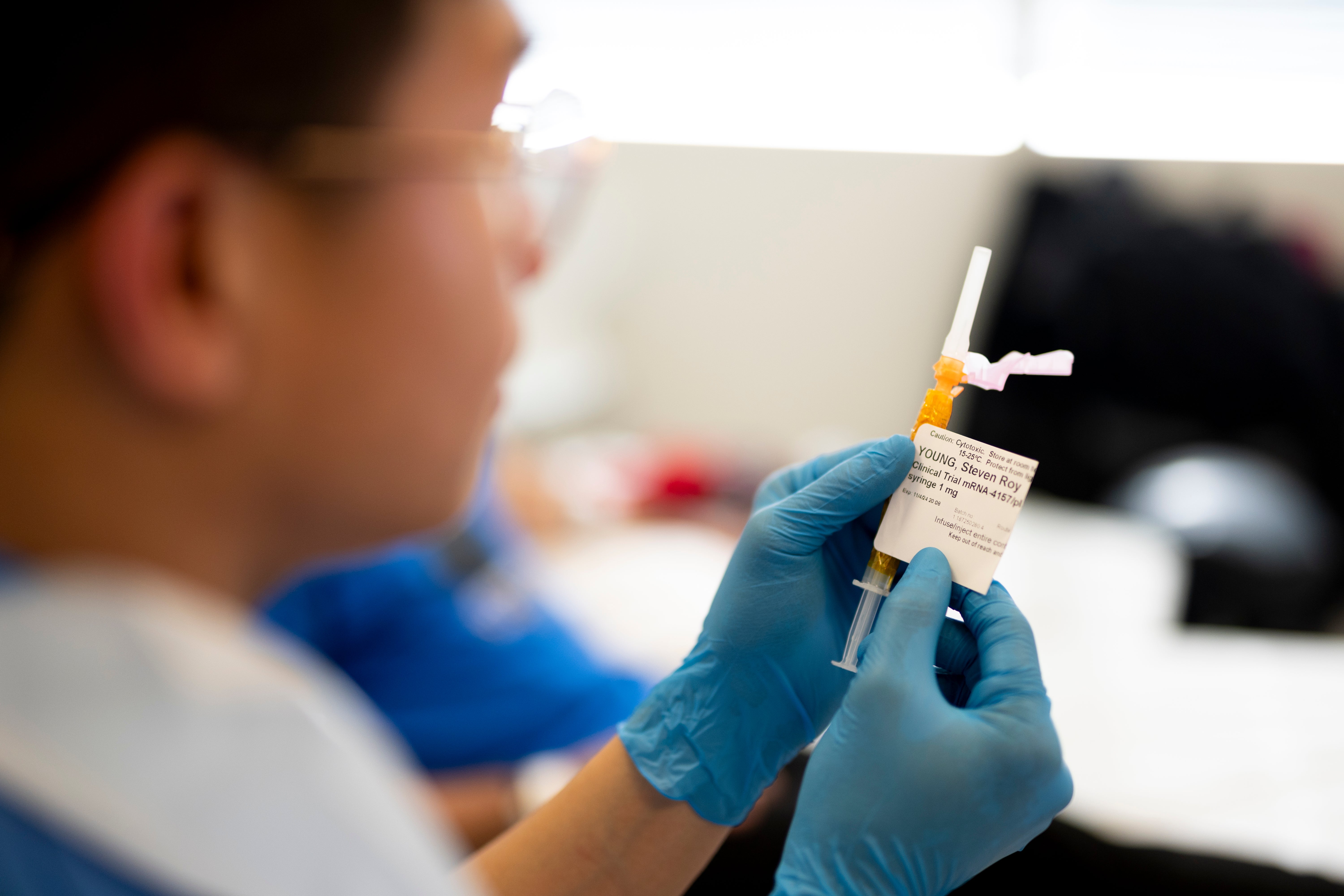
In order to create the jab, a sample of tumour is removed during the patient’s surgery, followed by DNA sequencing and the use of artificial intelligence.
The result is a personalised anti-cancer jab which is specific to the patient’s tumour.
Dr Shaw said: “This is very much an individualised therapy and it’s far cleverer in some senses than a vaccine.
“It is absolutely custom-built for the patient – you couldn’t give this to the next patient in the line because you wouldn’t expect it to work.
“They may have some shared new antigens, but they’re likely to have their own very individual new antigens that are important to their tumour and so, therefore, it is truly personalised.”
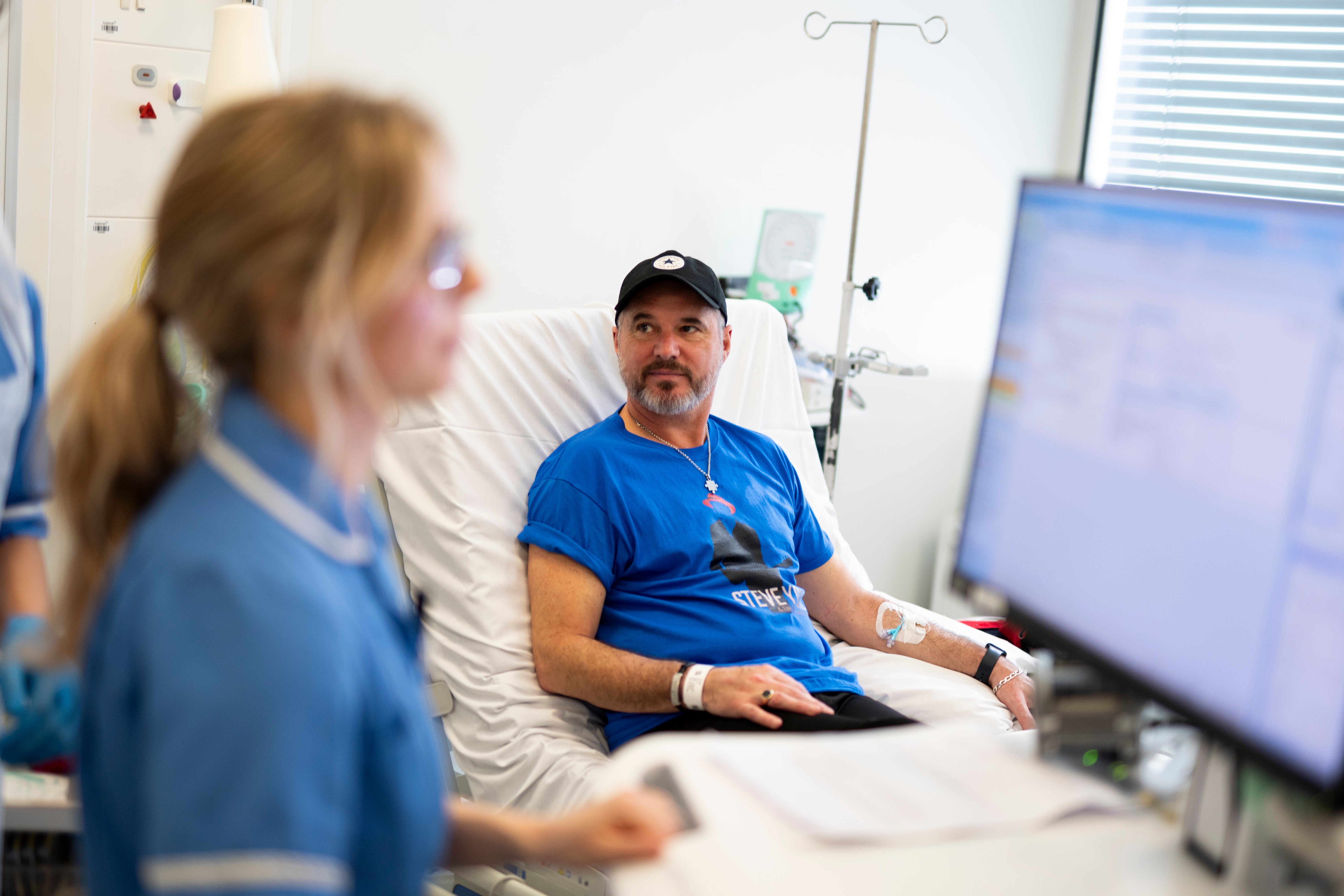
The ultimate aim is to cure patients of their cancer, Dr Shaw said.
Dr Shaw said: “I think there is a real hope that these will be the game-changers in immunotherapy.
“We’ve looked for a long time for something that would be additive to the immunotherapies that we already have – that we know can be life-changing for patients – but with something that’s got a really acceptable side-effect profile.
“And these therapies look as if they may offer that promise.”
Dr Shaw said side effects include tiredness and a sore arm where the jab was given.
“So it appears to be relatively tolerable and actually no worse than having a flu vaccine or a Covid jab for the majority of patients,” she said.
Professor Lawrence Young, from the University of Warwick, said: “This is one of the most exciting developments in modern cancer therapy.
“Combining a personalised cancer vaccine to boost a specific immune response to the patient’s tumour along with using an antibody to release the brake on the body’s immune response has already shown great promise in patients whose original skin cancer (melanoma) has been removed.
“Interest in cancer vaccines has been reignited in recent years by a deeper understanding of how the body controls immune responses and by the advent of mRNA vaccines which makes developing a vaccine based on the immune profile of a patient’s own tumour much more straightforward.
“The hope is that this approach could be extended to other cancers such those of the lung and colon.”
Subscribe to Independent Premium to bookmark this article
Want to bookmark your favourite articles and stories to read or reference later? Start your Independent Premium subscription today.
Join our commenting forum
Join thought-provoking conversations, follow other Independent readers and see their replies
Comments